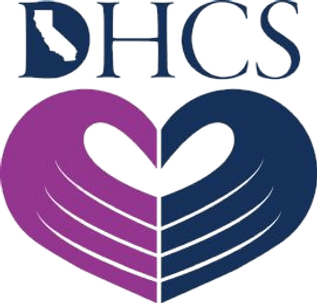What is brain fog? If you’re struggling with forgetfulness, confusion, or trouble focusing, you may be experiencing it. Treating brain fog is an important step in helping your mind heal after substance use. When you stop using drugs or alcohol, your brain needs time to regain clarity and function properly again.
But can you fully recover? Here, you’ll learn how substance use causes brain fog, what to expect in terms of recovery in the short and long term, and whether your mind can return to full clarity over time.

Understanding Brain Fog
Brain fog is a term people use to describe when they feel mentally sluggish or fuzzy. You might find it hard to concentrate, forget things easily, or feel like your thinking is slower than usual. According to the National Center for Biotechnology Information (NCBI), brain fog involves symptoms like forgetfulness, slow thinking, trouble focusing, and feeling like your mind is cloudy.1
It’s important to know that brain fog isn’t a specific medical condition. Instead, it’s a way to describe these kinds of cognitive difficulties. A study published in Trends in Neurosciences explains that brain fog refers to a mix of symptoms affecting thinking, fatigue, and mood. These symptoms can vary from person to person and might come from different causes.2
So, if you’re experiencing brain fog, you might feel like your mind isn’t as sharp as usual, making daily tasks more challenging.
How Brain Fog Is Caused by Substance Use Disorders (SUD)
When you use substances like drugs or alcohol for a long time, it can make your thinking slow and unclear, leading to brain fog. This happens because these substances can change how your brain works, especially in areas that help you focus, remember things, and make decisions.
For example, using cannabis heavily might hurt your short-term memory, making it harder to hold and use information in your mind. A study in JAMA Network Open found that many heavy cannabis users had less brain activity during tasks that needed working memory.3
Other substances can also cause thinking problems. People who use stimulants like cocaine or methamphetamine might find it harder to pay attention and control their impulses. Those who use opioids could struggle with adjusting to new situations. Alcohol use might lead to problems with remembering and focusing.4
These thinking problems can make daily life harder and may increase the chance of returning to substance use after trying to quit.
Short-Term Recovery: The First Few Months
When you stop using substances like drugs or alcohol, your brain starts to heal, and your thinking can become clearer. This early healing period, often called short-term recovery, happens during the first few months of abstinence.
First Month of Recovery
In the initial weeks after you stop using substances, you might notice some improvements in your ability to think and remember. Research indicates that major recovery in brain structure and function can occur within the first month of abstinence.
In fact, a study published in Alcohol Research: Current Reviews found that substantial improvements in neurobehavioral functions occur during the first four to eight weeks of abstinence, with verbal skills typically improving most quickly.5
Continued Recovery Over Several Months
As you maintain abstinence over the following months, your brain continues to heal, leading to further improvements in cognitive functions like memory, attention, and problem-solving. A review in Substance Abuse noted that some cognitive functions partially recover after sustained abstinence, although the extent of recovery can vary based on factors such as the type of substance used and the duration of use.6
Factors Influencing Recovery
Your recovery journey is unique, and several factors can influence how quickly and fully your brain heals:
- Smoking: Continuing to smoke during recovery can slow down brain healing. Studies have shown that individuals who abstain from alcohol but continue smoking exhibit less cognitive recovery compared to non-smokers.7
- Age and Substance Use History: Older individuals or those with a long history of heavy substance use might experience slower recovery. However, sustained abstinence still leads to improvements over time.8
- Overall Health: Conditions like high blood pressure or diabetes can affect brain recovery. Maintaining good physical health supports better cognitive healing during abstinence.
Staying committed to abstinence and taking care of your health allow your brain to heal and regain its clarity over time.
Long-Term Cognitive Recovery: Can You Regain Full Mental Clarity?
As you maintain abstinence over several months, your brain continues to recover. Research indicates that certain brain regions, such as the frontal cortex, insula, hippocampus, and cerebellum, show structural improvements during this period.
Functional recovery in areas related to decision-making and impulse control has also been observed. These changes are associated with better cognitive performance, including improved memory, attention, and problem-solving skills.9
Enhancing Cognitive Recovery
To aid your brain’s healing process:
- Cognitive Training: Participating in exercises designed to improve memory, attention, and problem-solving skills can be beneficial. A systematic review found that cognitive training led to improvements in these areas for individuals recovering from substance use disorders.10
- New Learning Experiences: Engaging in healthy and natural activities, such as practicing yoga and meditation and scheduling breaks during your day, can promote positive changes in the brain and support recovery.
Achieving full mental clarity after stopping substance use is a gradual process that varies for each person. While many individuals experience cognitive improvements over time, some may continue to face challenges. Be patient and seek support from healthcare professionals during your recovery journey.
How to Seek Help and Support for Brain Fog Caused by SUD
There are many ways to find support and start healing. Here’s how you can get started:
1. Talk to a Medical Professional
A doctor or therapist can help you understand why you’re experiencing brain fog and what steps to take. They might recommend medical detox, therapy, or lifestyle changes to improve your brain function.
2. Join a Support Group
Being around others who understand what you’re going through can make a big difference. Groups like Alcoholics Anonymous (AA) or Narcotics Anonymous (NA) offer a space to share experiences and get encouragement.
3. Consider Professional Recovery Programs
Outpatient programs and holistic treatments can support your journey. These programs help you build healthier habits while still managing daily life. They usually have trained therapists who can help you work through the mental effects of substance use. Therapy can also teach you coping skills to manage stress, which helps your brain heal faster.
If you’re looking for a place that offers recovery programs, OceanRock Health can support you in treating brain fog caused by SUD. We focus on whole-body healing, helping you regain mental clarity and well-being.

Sources:
- Brain fog (Concept Id: C0015676) – MedGen – NCBI. (2024). Nih.gov
- Denno, P., Zhao, S., Husain, M., & Hampshire, A. (2025). Defining brain fog across medical conditions. Trends in Neurosciences.
- Gowin, J. L., et al. (2025). Brain Function Outcomes of Cannabis Use. JAMA Network Open, 8(1), e2457069.
- Gould, T. J. (2010). Addiction and Cognition. Addiction Science & Clinical Practice, 5(2), 4.
- Nixon, S. (2020). Brain Structure and Function in Recovery. Alcohol Research: Current Reviews, 40(3).
- Schulte, M. H. J., et al. (2014). Neurocognitive Recovery After Substance Dependence. Clinical Psychology Review, 34(7), 531–550.
- Pennington, D. L., et al. (2013). Smoking and Cognitive Recovery in Alcohol Abstinence. Alcoholism: Clinical and Experimental Research, 37(7), 1220–1227.
- Bates, M. E., et al. (2005). Short-Term Neuropsychological Recovery in SUD Clients. Alcoholism: Clinical & Experimental Research, 29(3), 367–377.
- Parvaz, M. A., et al. (2022). Brain Recovery in SUD During Abstinence. Drug and Alcohol Dependence, 232, 109319.
- Caetano, T., et al. (2021). Cognitive Training for SUD Recovery. Frontiers in Psychology, 12.









